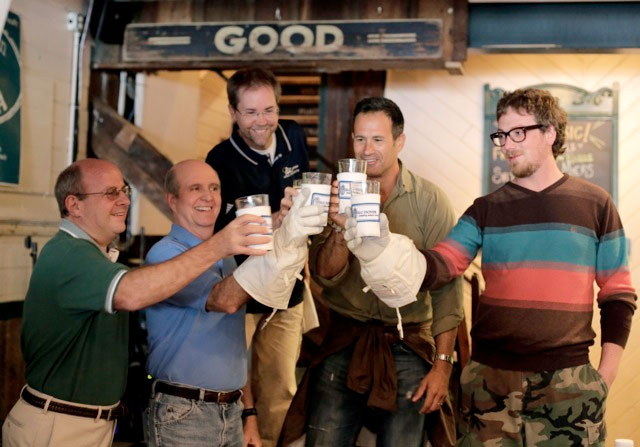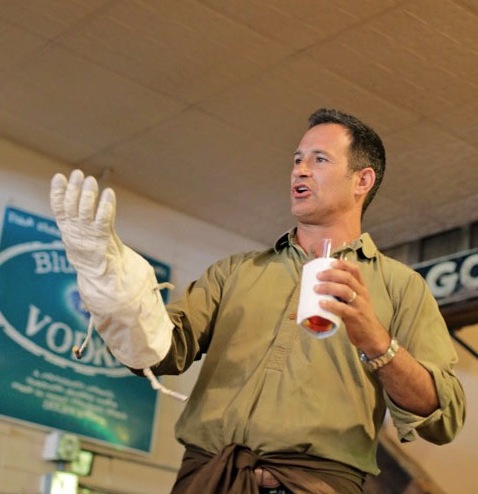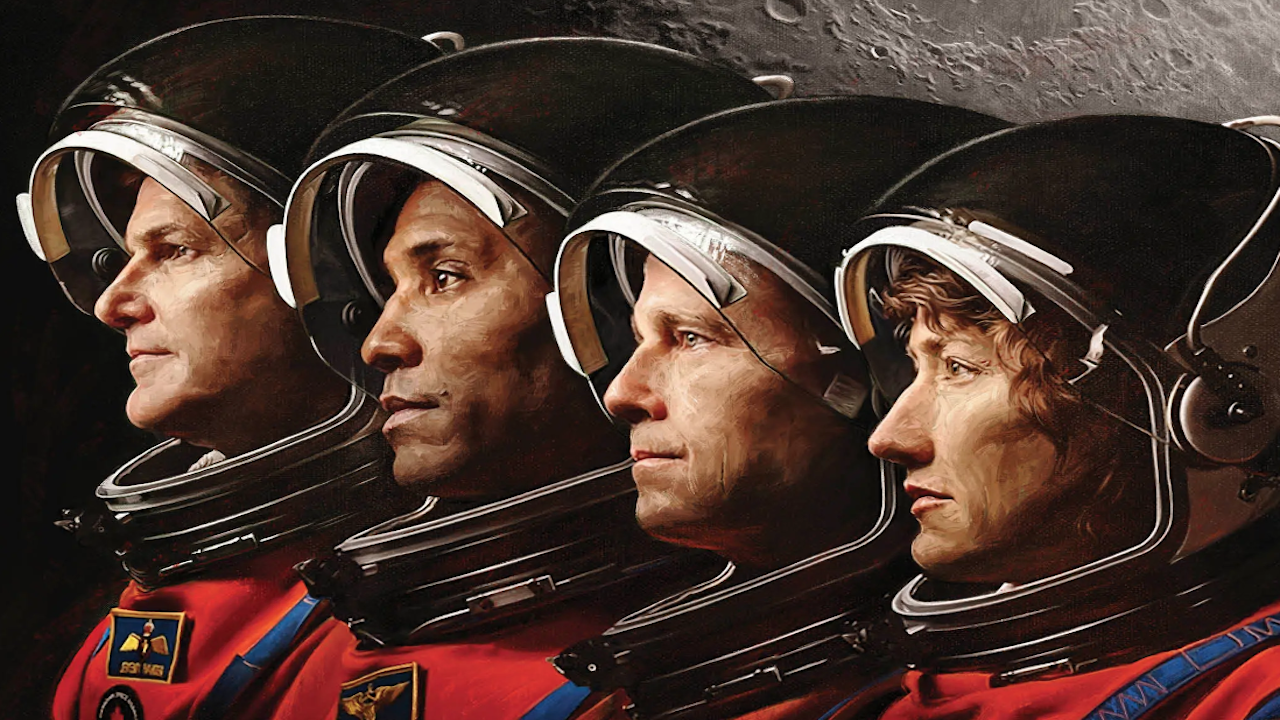Beer Made with Moon Dust Blends Brewer and Spacesuit Maker Skills

A beer brewed with moon dust might sound like a lunatic idea, but it is now a reality thanks to a Delaware brewery and the company behind NASA's Apollo spacesuits.
Now on tap at Dogfish Head Brewings and Eats restaurant in Delaware is "Celest-jewel-ale," a traditional German Oktoberfest beer with one not so traditional ingredient: moon dust.
What's more, each pint of the Harvest Moon-inspired ale is available in a spacesuit-fabric-wrapped glass. [Space Food Photos: What Astronauts Eat In Orbit]
"Celest-jewel-ale is made with lunar meteorites that have been crushed into dust, then steeped like tea in a rich, malty Oktoberfest," the Rehoboth Beach eatery wrote on its website. "These certified moon jewels are made up primarily of minerals and salts, helping the yeast-induced fermentation process and lending this traditional German style a subtle but complex earthiness."
"Or is it mooniness?" the craft ale creators posed.
Dogfish Head recruited nearby ILC Dover, the contractor that created the spacesuits worn by the Apollo astronauts on the moon, to source the lunar meteorites for its brew and provide the custom space-age beer koozies.
ILC, or the International Latex Corporation — perhaps best known by its consumer brand, Playtex — recently became the focus of a feature film now in development by Warner Bros. Pictures. The company was also recognized by the American Society of Mechanical Engineers for its creation of the Apollo A7L spacesuit, which was named a "Historic Mechanical Engineering Landmark" in September.
Breaking space news, the latest updates on rocket launches, skywatching events and more!
Celest-jewel-ale, which is a limited brew and only available on tap at the Dogfish Head restaurant, is described by its creators as having "notes of doughy malt, toasted bread, subtle caramel and a light herbal bitterness."
Lunar meteorites are a relatively rare commodity, although they are legal to buy and sell — and, evidently, drink. Had the brewery wanted any of the lunar samples brought back by the Apollo astronauts, they would have been limited to trying to obtain and then scrape the lunar material off the few dust-stained artifacts saved by the space voyagers as souvenirs.
NASA considers the rocks collected during mankind's first missions to the moon a National Treasure and has never given away even the smallest of pebbles to any individual, let alone a brewery.
That does not mean however, that Dogfish Head's ale isn't without a touch of NASA history.
"ILC is making sure this is the best-protected beer on the planet with koozies made from the same material as their spacesuits," the restaurant wrote on its website.
The outer layer is "Orthofabric," woven together with Gore-Tex, Nomex and Kevlar layers. As used on the spacesuit, the slippery Gore-Tex protects against friction building up between parts to facilitate mobility. Its color also limits the absorption of solar energy.
The Nomex is for protection against fire damage, and the Kevlar prevents tearing.
Inside the koozie, aluminized-mylar insulation layers help maintain a comfortable temperature. In space, the layers help reflect the sun's rays and the astronaut's body heat. The koozie's inner foam is polyurethane, which provides a comfortable padding between the astronaut and spacesuit.
Finally, there is polyester, which provides spacesuits with structural integrity and helps keep the joints mobile when the garment is pressurized.
All the materials in the koozie can withstand the rigors of space including extreme temperatures ranging from 250 to minus 250 degrees Fahrenheit (121 to minus 157 degrees Celsius), micrometeoroids traveling at 10 miles per second (16 km/s), solar radiation and the vacuum of space.
"Just as these materials surround the astronauts and keep them at the optimal temperature, they will do the same for beverages," Dogfish Head states.
Patrons can use the koozies so long as they are seated in the restaurant. Only ten of the space-age sleeves exist.
"The [koozies are] a little more valuable than your average foam jobbie, so you'll have to hand over your license and drink your Celest-jewel-ale at the bar," Dogfish Head Craft Brewery explains on its website. "We've gotta keep these beauties grounded!"
Click through to collectSPACE.com to see more photos of Dogfish Head’s Celest-jewel-ale and ILC Dover’s spacesuit koozies.
Follow collectSPACE.com on Facebook and on Twitter at @collectSPACE. Copyright 2013 collectSPACE.com. All rights reserved.

Robert Pearlman is a space historian, journalist and the founder and editor of collectSPACE.com, a daily news publication and community devoted to space history with a particular focus on how and where space exploration intersects with pop culture. Pearlman is also a contributing writer for Space.com and co-author of "Space Stations: The Art, Science, and Reality of Working in Space” published by Smithsonian Books in 2018.
In 2009, he was inducted into the U.S. Space Camp Hall of Fame in Huntsville, Alabama. In 2021, he was honored by the American Astronautical Society with the Ordway Award for Sustained Excellence in Spaceflight History. In 2023, the National Space Club Florida Committee recognized Pearlman with the Kolcum News and Communications Award for excellence in telling the space story along the Space Coast and throughout the world.


